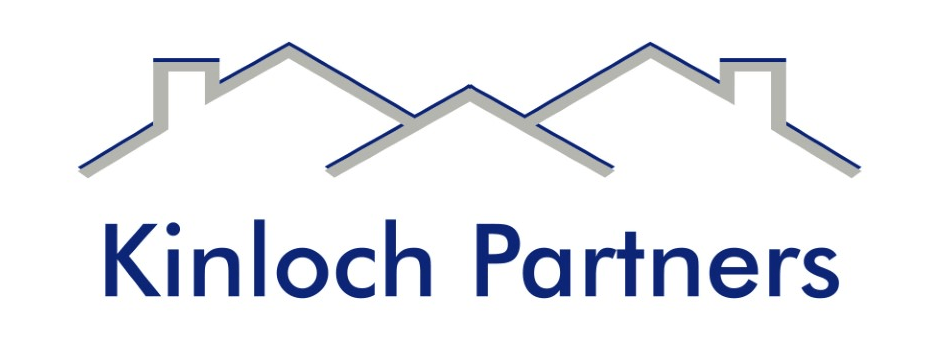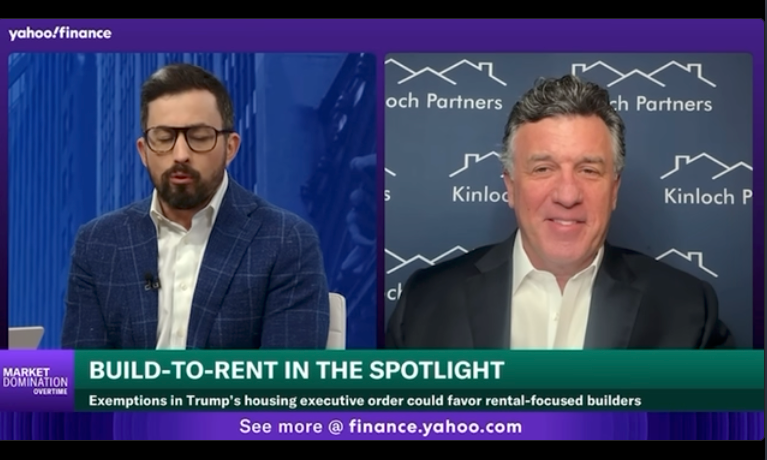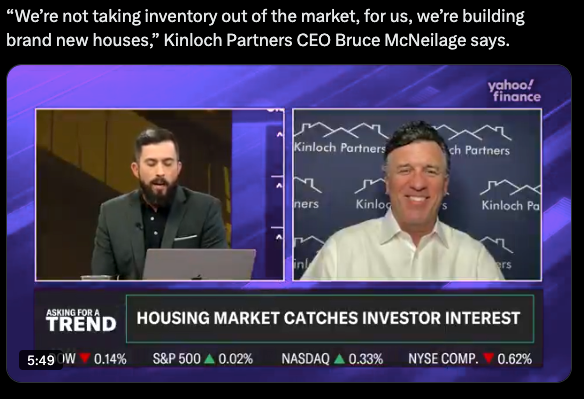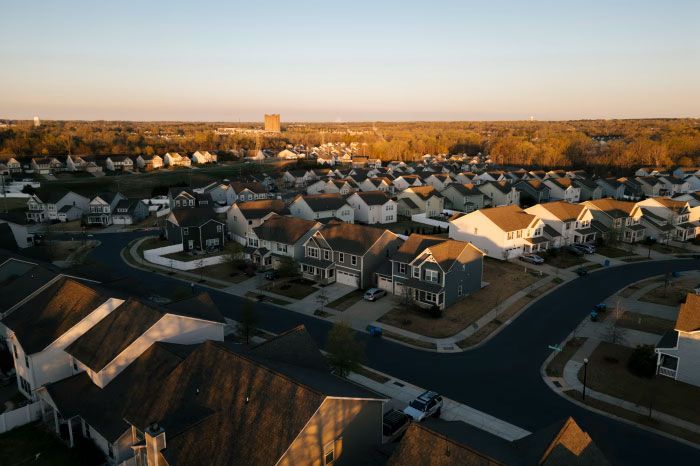Buy or rent a home? New Middle Tennessee neighborhoods cater to trend in renting
Featured in the Tennesseean: https://amp.tennessean.com/amp/4743190002
-
Many individuals and couples who could afford to buy a home in Middle Tennessee are choosing to rent instead, said Bruce McNeilage, CEO and co-founder of Kinloch Partners and Harpeth Development.
-
Harpeth developed Fairview Station, a neighborhood of 30 new houses in Williamson County where every home is for rent.
-
The company also has DerryBerry Estates and Crooked Creek, two similar neighborhoods on the Maury County side of Spring Hill.
At least for now, Eddie Baida and Darcy McNew are ex-homeowners and that suits them fine.
The couple owned a house in Miami, but when they moved to the Nashville area looking for a better place to raise their children, they decided not to buy right away. They wanted the freedom to move around and check out neighborhoods and schools.
“We wanted to give it a minute to see what the best decision was for us,” said Baida.
Finding a nice, single-family home for rent in Williamson County turned into a challenge.
“I was getting a little desperate. We shared a friend’s house for over a month,” he said.
Then Baida and McNew discovered Fairview Station, a neighborhood of 30 new houses in Williamson County where every home is for rent. They have a four-bedroom house with a two-car garage and space for a den and an office.
“We turned the extra bedroom into a playroom. That way the house stays organized,” said Baida. “The house is perfect for us.”
GET THE LATEST UPDATES: Download the free Tennessean app on your mobile device
Many individuals and couples who could afford to buy a home are choosing to rent instead, said Bruce McNeilage, CEO and co-founder of Kinloch Partners and Harpeth Development, who developed Fairview Station.
The company also has DerryBerry Estates and Crooked Creek, two similar neighborhoods on the Maury County side of Spring Hill. DerryBerry Estates has 34 homes. McNeilage has 25 houses in Crooked Creek and plans another 37, all built to rent. Other builders are also active in the neighborhood.

“We have renters who are qualified to buy but have chosen to rent,” said McNeilage.
Some were transferred by an employer and want to be sure the job works out before buying a home. Others sold a home and at least for now want to keep their cash on hand, not tied up in another house. Some are empty nesters who are downsizing but haven’t decided where they want to move.
Frequent travelers to Nashville may find that a rental house can be a cheaper alternative to a hotel. Monthly rents in Fairview Station, for example, range from $1,875 to $1,900. In Crooked Creek and DerryBerry Estates, rents range from $1,600 to $1,775.
“I’m a lot cheaper than two or three nights at the Omni,” said McNeilage.
Then there’s the phenomenon of “grandparents chasing grandkids,” he said.
Parents on a career track may be transferred every few years, and the grandparents follow.
“Grandparents don’t want to be tied down to a house because they have to move on quick notice,” said McNeilage.

A national trend
The national home building industry has noticed the demand for single-family rentals. Last year, one in 20 new homes was built to rent, not to sell. That was nearly double the historical share, according to Builder Magazine, a publication of the National Association of Home Builders.
Locally, builders may reserve a few homes for rent in a for-sale neighborhood, but McNeilage and one other developer, HND Realty, are the first in the Nashville region to offer entire large subdivisions of single-family homes built for rent.
HND developed The Cottages at Mount View, located in Antioch along a quickly redeveloping stretch of Murfreesboro Pike. The neighborhood offers apartment-style amenities including a fitness center and a swimming pool.
“We’re seeing the phenomenon of renting because you want to. A lot of people are renters by choice, not economic circumstances,” said McNeilage, who is a strong advocate of homeownership and has a standing offer for any of his tenants to buy their house.
“I’ll be happy to sell to you. You never have to leave. Same schools, everything,” he said.
For now, Baida can’t imagine living anyplace other than Fairview Station. His daughter attends Westwood Elementary School next door.
“I can sit on the porch and watch my daughter walk to school and walk in the door,” he said.












